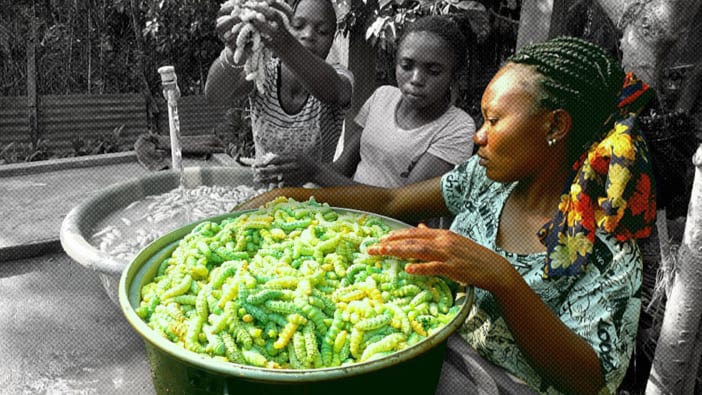In the Kongo Central province of the Democratic Republic of Congo (DRC), edible caterpillars are a delicacy and have been harvested for generations. They are rich in high‑quality proteins, fats and micronutrients and they can be sold in the market for a profit.
However, many of the trees and plants that the caterpillars need to survive have been cleared due to timber extraction, slash-and-burn agriculture and charcoal production. Caterpillar numbers have fallen and some species have disappeared completely. Communities that used to rely on caterpillars and other forest products for food and income are experiencing high levels of adult and child malnutrition.
To address this challenge, The Salvation Army in DRC is partnering with local organisation Songa Nzila to increase the availability of caterpillars through reforestation and caterpillar farming. Caterpillars are cheap to produce and everyone can participate in breeding and rearing them including women, children and people with disabilities.
New skills
With support from village elders, each community establishes a Caterpillar Management Committee. These committees learn how to breed caterpillars and grow the trees that the insects need for food and protection. The committee members then pass on these skills to others in their communities.












